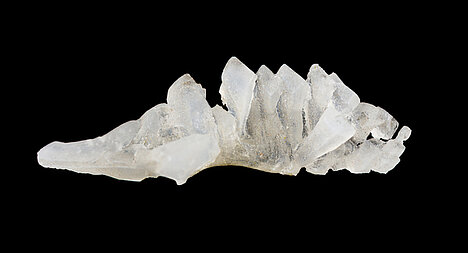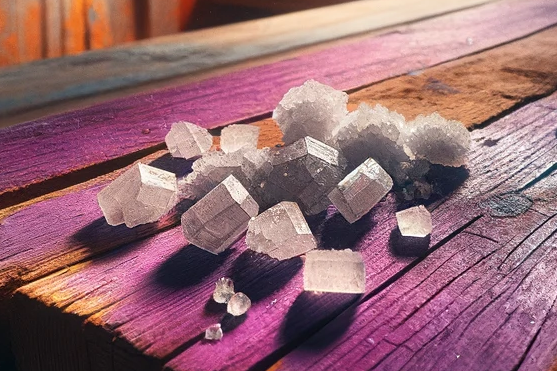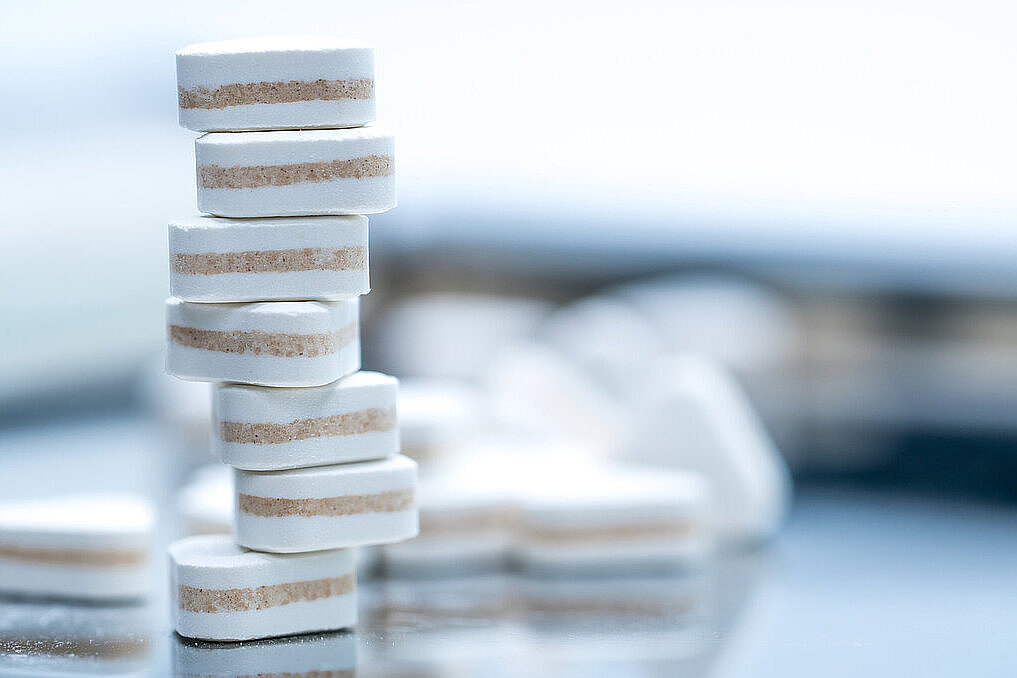Ammonium chloride

What is ammonium chloride?
Ammonium chloride is a chemical compound of nitrogen, hydrogen and chlorine. It forms white crystals that taste salty-sour. Ammonium chloride occurs naturally in volcanoes, minerals and plants. However, it is also produced artificially and used for various purposes.
How does ammonium chloride affect dogs?
Ammonium chloridehas several effects in dogs:
- It promotes the expulsion of mucus from the respiratory tract and thus relieves coughing.
- It lowers the pH value of the urine and makes it more acidic. This can help to treat or prevent urinary tract infections.
- It increases the excretion of water from the body and thus has a diuretic effect.
What are the benefits of ammonium chloride for dogs?
Ammonium chloridecan be useful for certain conditions in your dog:
- If your dog is suffering from a productive cough caused by a cold or bronchitis, ammonium chloride can help him get rid of mucus and make breathing easier.
- If your dog is suffering from cystitis or another bacterial infection of the urinary tract, ammonium chloride can acidify the urine and thus worsen the living conditions of the pathogens. This can support healing or prevent re-infection.
- If your dog suffers from renal insufficiency or has too much calcium in the blood, ammonium chloride can prevent or dissolve the formation of kidney stones.
What are the disadvantages of ammonium chloride for dogs?
Ammonium chlorideis not without risks for your dog. Too much of it can lead to the following side effects:
- Hyperacidity of the blood (acidosis), which can cause headaches, nausea, vomiting, weakness and loss of consciousness.
- Irritation of the stomach lining, which can cause stomach pain, heartburn or ulcers.
- A lowering of the potassium level in the blood (hypokalemia), which can cause muscle weakness, cramps or cardiac arrhythmia.
You should also be careful about giving ammonium chloride to your dog if he has:
- Suffers from liver disease
- Suffers from kidney disease
- Suffers from a potassium deficiency
- Is taking other medication
Ammonium chloride is an ingredient with various effects in dogs. It can be helpful for certain diseases, but can also have side effects.
Properties 7
Are you looking for other ingredients with a specific property?
Just click on them to find more.
If you notice any signs of hypersensitivity or poisoning in your dog, you should see your vet immediately. We are not a substitute for a vet, but we try to be as accurate as possible. Every dog reacts differently and we recommend you get a second opinion or consult your vet if in doubt.
Stay healthy and take good care of your four-legged friend!😊
Similar to Ammonium chloride
Sodium chloride fulfills several important functions in the dog's body. Firstly, it is involved in the production of hydrochloric acid in the stomach, which is necessary for digestion. Secondly, it...
Potassium chloride (KCl) is the potassium salt of hydrochloric acid. It forms colorless, salty-bitter tasting crystals that dissolve well in water. Potassium chloride is approved as a food additive...
Sodium hydroxide is an important raw material in the chemical industry. It is used, for example, to produce soap, paper, plastics and dyes. It is also used to neutralize acids or dissolve other...
Potassium hydroxide, also known as caustic potash, is a white, odorless solid with the formula KOH. It dissolves in water with great heat development and forms a strong base called caustic potash....



